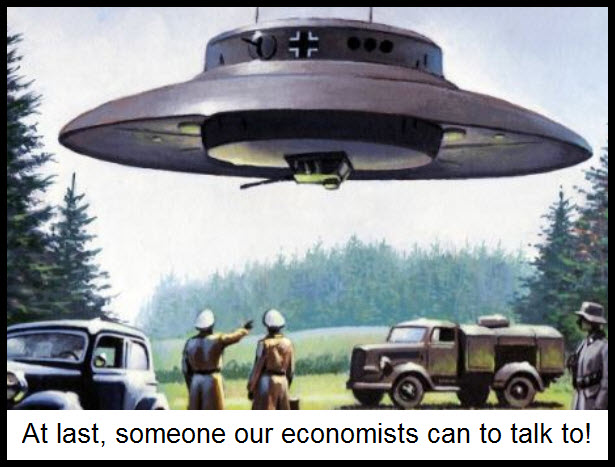Courtesy of ZeroHedge. View original post here.
Submitted by RickAckerman.
For breathtakingly stupid political ideas and catastrophic “solutions” to America’s biggest problems, it’s hard to beat the New York Times op-ed page. There, joined by such jihadists of the Left as Frank Rich and Maureen Dowd, resides the peerlessly wrong-headed economist Paul Krugman, whose Nobel Prize was as well-deserved as the one Yasser Arafat received for helping to bring Peace to the world.
Until yesterday, we might have thought Krugman had cornered the market for the absolute worst ideas on how to revive the economy. Here’s a guy who actually seems to believe, in his heart of hearts, that the reason this has not yet occurred is that the central banks of Europe, the U.S. and Japan have not thrown enough money at the problem. We stopped counting stimulus dollars and guarantees ourselves when the total hit $15 trillion a couple of years ago. That was long after we’d become convinced that deficit spending in such cosmic quantities, far from reviving the economy, would ultimately bury the U.S. in debt. As it has. Such concerns pose no problem for Krugman, however, since he simply avoids using the word “debt” in his Martian-friendly economic essays.

There are so many world-class crackpots in Krugman’s chosen field that it was all but inevitable a colleague would surface to challenge the Nobelist for the top spot in the Dismal Science’s Hall of Shame. Enter one James A. Wilcox, author of a Wednesday op-ed piece that purported to offer “A Way to Make People Buy Homes Again”. Wilcox, a professor at Berkeley, of all places, says all that is needed to jump-start the residential real estate market is government mortgage insurance.
Specifically, he suggests a one-time premium equal to one percent on the home’s purchase price, or $2000 for a house selling for $200,000. At the end of three years, says Wilcox, “the government would automatically mail checks to protected homeowners if average house prices in their area were lower than when they purchased their homes.” He’s right about one thing: this would stimulate demand from would-be buyers who have been sitting on the fence waiting for prices to fall even further. Sounds like a good idea, right? In fact, it is a recipe for disaster. To understand why, let’s consider the main features of Wilcox’s proposal:
- He says mortgage lenders might loosen up if “the government” (aka taxpayers) were to backstop prices. Do we really need easier credit for home buyers? Have we learned nothing from the disaster this caused in the first place? In fact, the 20% downpayment lenders are now demanding is about as loose as mortgages should ever have gotten. In effect, Wilcox is suggesting that we stimulate the housing market by creating a whole new army of poorly qualified buyers.
- Evidently unable to chew gum and breathe at the same time, argumentatively speaking, he talks about stimulating housing demand without even considering supply. Does anyone doubt that there are millions of sellers out there, including banks holding foreclosed loans, waiting for some bids to surface so that they can finally whack-the-mole and get out of Dodge?
- It should also be clear (to anyone but a university-trained economist, that is) that the moment “the government” guarantees that buyers cannot lose no matter how much they pay for homes, neither buyer nor seller will much care about the home’s true market value.
- Wilcox says that stimulating home purchases would have a ripple effect on the economy. Only an egghead could fail to see that the ripple would be financed by huge news quantities of borrowing collateralized by a wasting asset that produces nothing.
- With a straight face, and apparently using Obamacare math, Wilcox informs us that if two million participants were to take advantage of his hare-brained scheme, “the expected net cost to taxpayers would be a few billion dollars annually.” We won’t even comment, since we can hear you laughing at that one already.
Unfortunately, Wilcox and the Times’ benighted readers, conditioned by the likes of Krugman to think like left-leaning politicians, would see nothing funny in Wilcox’s nutty idea. But there is no denying its populist appeal. Lord help us if mortgage insurance ever comes up for a vote on Capitol Hill.



